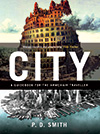Keep your fingers crossed for me – my edited manuscript just went off to my agent in the US, Zoe Pagnamenta. Hopefully it'll find a home at a publisher there – otherwise those of you across the pond who have expressed an interest in buying it will have make do with a UK edition…
I also thought I'd tell you about a really great book I've just been reviewing – The Oxford Dictionary of Scientific Quotations. Ok, so the title doesn't sound so hot, but believe me this is a wonderful book. Medical historians WF Bynum and the late great Roy Porter spent fifteen years accumulating quotes on science. This is the splendid result - to my mind, it's a lot more than just a reference book for it really opens up the cultures of science and allows you to dip into some of the most fascinating debates in human history.
I also like the way they haven't just included quotes by famous scientists. There are ones from writers, poets, and critics. Passages from Max Born stand next to Borges, Frederick Soddy next to Tom Stoppard (Rosencrantz: "Eternity is a terrible thought. I mean, where's it going to end?"); and Hans Bethe is alongside the Bible, which would have brought a wry smile to the face of the physicist who revealed the secret of the sun's energy.
The great German writer and Romantic scientist Goethe is well represented. They missed one of my favourites: "Life divided by reason leaves a remainder." But this was new to me: "Mathematicians are like a certain type of Frenchman: when you talk to them they translate it into their own language, and then it soon turns into something completely different."
For some reason Einstein only gets three or so pages of quotes, whereas Newton gets more than eight pages. William Blake (half a page) would have been displeased: "Pray God us keep / From single vision & Newton's sleep!"
This is one of my favourites from Einstein: "I never think of the future. It comes soon enough."
On the subject of the future, there's this classic from quantum guru Niels Bohr: "Predictions can be very difficult – especially about the future." By the way, just in case you wondered (and I know Steven Hall did), Bohr is responsible for my profile quote too.
There are some suitably incomprehensible passages from Stephen Hawking, as well as this wonderful side-swipe at Einstein's opposition to the unpredictability of quantum theory: "God not only plays dice, but also sometimes throws them where they cannot be seen."
This book gives science and scientists a human face. As the outspoken co-discoverer of the structure of DNA, Jim Watson, shows: "One could not be a successful scientist without realizing that, in contrast to the popular conception supported by newspapers and mothers of scientists, a goodly number of scientists are not only narrow-minded and dull, but also just stupid."
Watson's quote perhaps explains this classic misjudgement by industrialist Thomas J Watson, Sr.: "I think that there is a world market for about five computers."
Remember that the next time you listen to some technophile predicting that a shining scientific utopia is just around the corner. Or as George Bernard Shaw put it: "Science is always wrong. It never solves a problem without creating ten more."
Carl Sagan has these wise words on the practice of science itself: "One of the great commandments of science is, 'Mistrust arguments from authority'. (Scientists, being primates, and thus given to dominance hierarchies, of course do not always follow this commandment.)"
But it seems somehow appropriate when talking about quotes from the great and the good that the final comment should go to an anonymous saying: "Man occasionally stumbles on the truth, but then just picks himself up and hurries on regardless."
If any of you have got a favourite quote – not just on science, but on life, the universe & everything (it doesn't get broader than that!) – then I'd love to hear them. My own rather quirky favourite on science (not in Bynum & Porter's book) is from the cold war film Hell and High Water (1954):
"That's no female. That's a scientist."
[originally on MySpace]
 Of course, when it comes to food and wine, France still rules the world. Even simple and inexpensive things like cheese and bread taste better here. How is it that we have completely forgotten how to make mouth-watering bread here in Britain? Answers on a (French) postcard please.
Of course, when it comes to food and wine, France still rules the world. Even simple and inexpensive things like cheese and bread taste better here. How is it that we have completely forgotten how to make mouth-watering bread here in Britain? Answers on a (French) postcard please.

